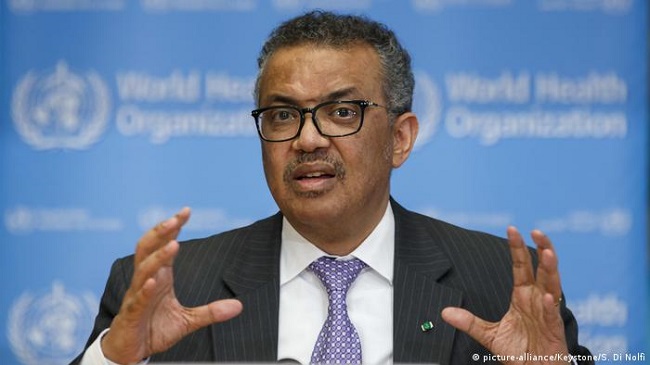For the second time in two years, the World Health Organisation (WHO) has taken the extraordinary step of declaring a global emergency. This time the cause is monkeypox, which has spread in just a few weeks to dozens of countries and infected tens of thousands of people.

Dr. Tedros Adhanom Ghebreyesus, the WHO’s director general, on Saturday, July 23, 2022, overruled a panel of advisers, who could not come to a consensus, and declared a “public health emergency of international concern,” a designation the WHO currently uses to describe only two other diseases, Covid-19 and polio.
“We have an outbreak that has spread around the world rapidly through new modes of transmission, about which we understand too little, and which meets the criteria” for a public health emergency, Dr. Tedros told reporters. It was apparently the first time that the director general had sidestepped his advisers to declare an emergency.
The WHO’s declaration signals a public health risk requiring a coordinated international response. The designation can lead member countries to invest significant resources in controlling an outbreak, draw more funding to the response, and encourage nations to share vaccines, treatments and other key resources for containing the outbreak.
It is the seventh public health emergency since 2007; the Covid pandemic, of course, was the most recent. Some global health experts have criticised the WHO’s criteria for declaring such emergencies as opaque and inconsistent.
At a meeting in June, the WHO’s advisers concluded that while monkeypox was a growing threat, it was not yet an international emergency. The panel could not reach a decision on Thursday, Dr. Tedros said.
“This process demonstrates once again that this vital tool needs to be sharpened to make it more effective,” he added, referring to the WHO’s deliberations.
Monkeypox has been a concern for years in some African countries, but in recent weeks the virus has spread worldwide. Some 75 countries have reported at least 16,000 cases so far, roughly five times the number when the W.H.O.’s advisers met in June.
Nearly all the infections outside Africa have occurred among men who have sex with men. The outbreak has galvanised many in the L.G.B.T. community, who have charged that monkeypox has not received the attention it deserves, as happened in the early days of the H.I.V. epidemic.
The WHO’s declaration is “better late than never,” said Dr. Boghuma Titanji, an infectious diseases physician at Emory University in Atlanta.
But with the delay, “one can argue that the response globally has continued to suffer from a lack of coordination with individual countries working at very different paces to address the problem.”
“There is almost capitulation that we cannot stop the monkeypox virus from establishing itself in a more permanent way,” she added.
Dr. James Lawler, co-director of the University of Nebraska’s Global Centre for Health Security, estimated that it might take a year or more to control the outbreak. By then, the virus is likely to have infected hundreds of thousands of people and may have permanently entrenched itself in some countries.
“We’ve now unfortunately really missed the boat on being able to put a lid on the outbreak earlier,” Dr. Lawler said. “Now it’s going to be a real struggle to be able to contain and control spread.”
The longer the outbreak goes on, the greater the chances are of the virus moving from infected people to animal populations, where it could persist and sporadically trigger new infections in people. This is one way that a disease can become endemic in a region.
Courtesy: The New York Times
